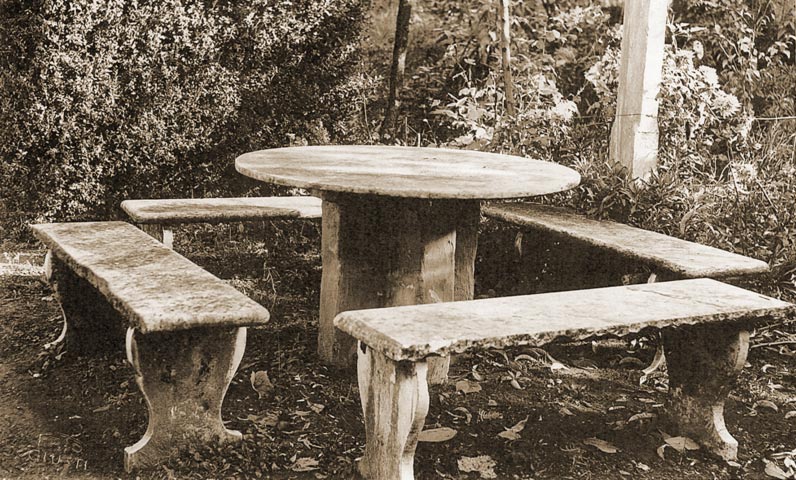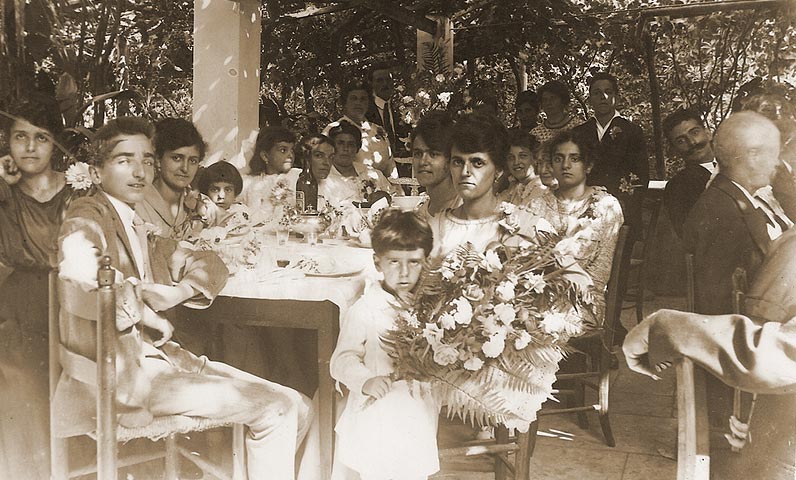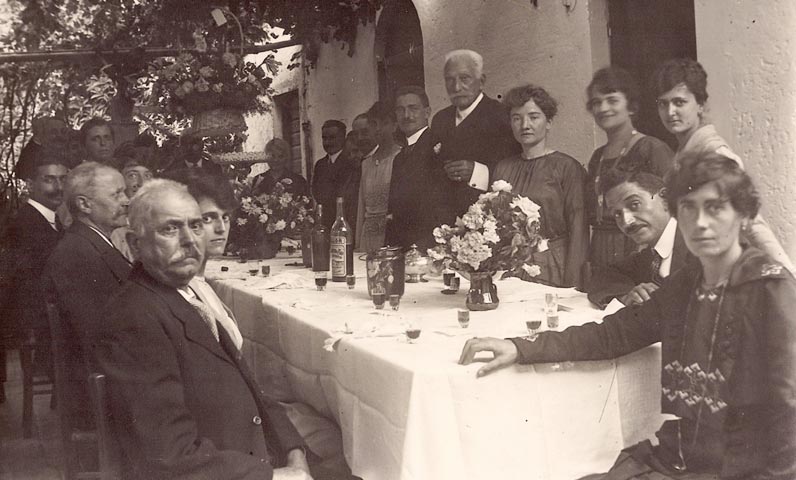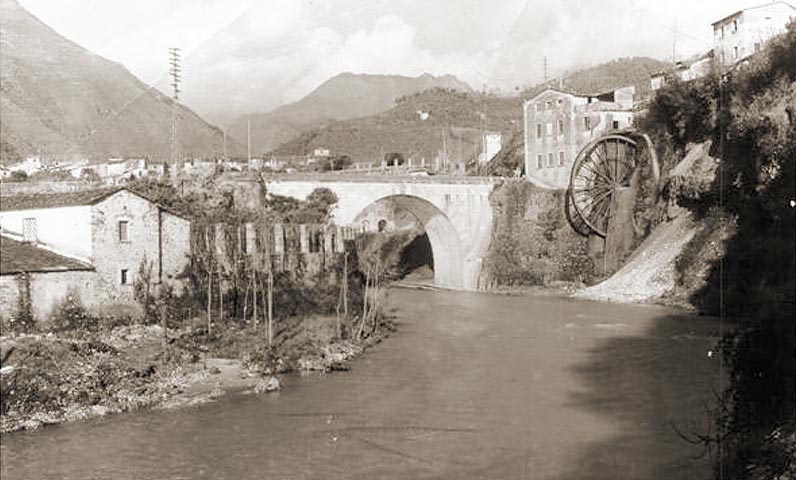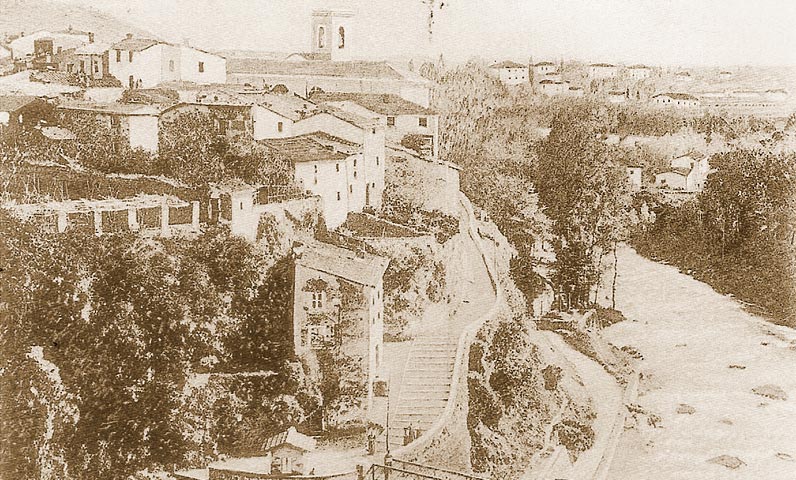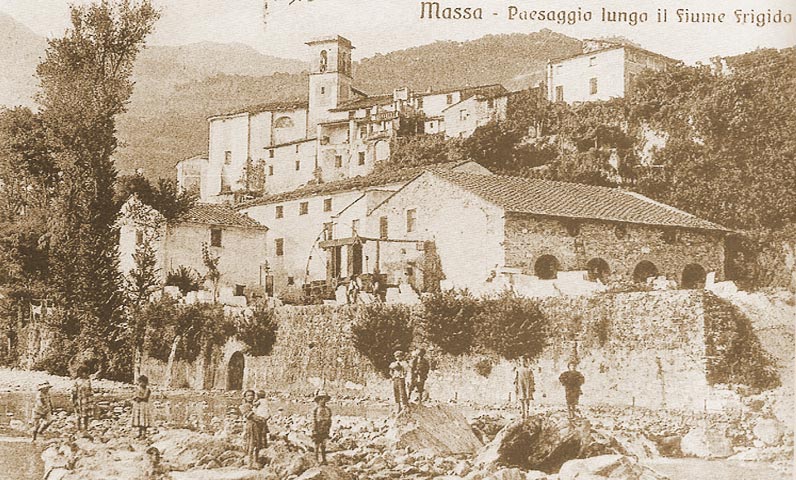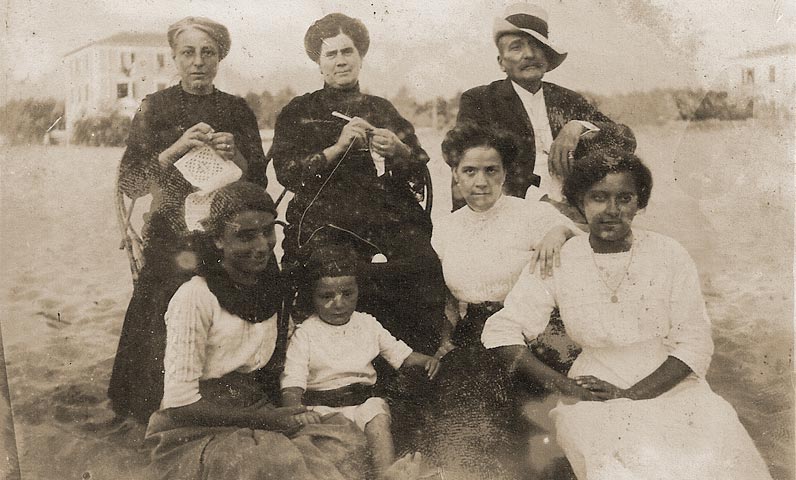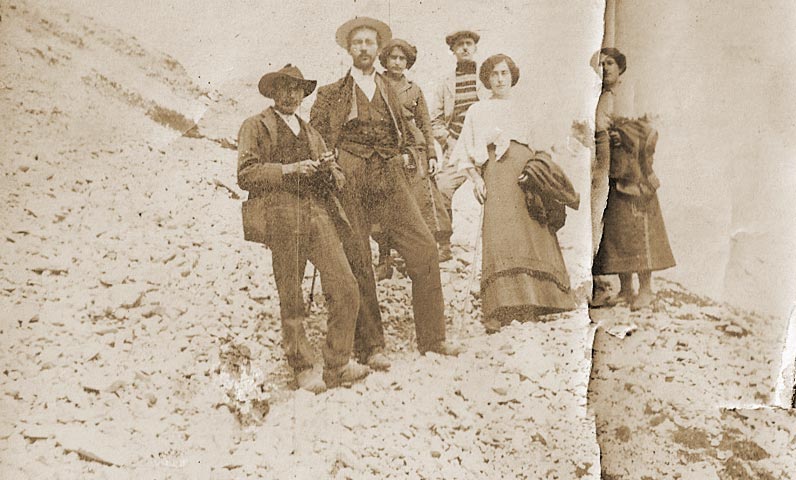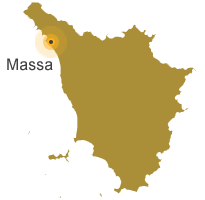As soon as you walk through the gate of Borgo del Ponte, holiday home in Tuscany at Massa, you will perceive a 19th century ambiance that greets you with its large orchard-garden filled with citrus and fruit trees of ancient varieties. A large cypress tree dominates the gentle beauty of the park. You will feel the tranquillity of the bygone days among the lemons, oranges and flowers.
The entire facility looks the way it did over a century ago. There are the same marble tables and benches lining the flowerbeds.
The poet Giovanni Pascoli used to sit at one of these tables, as he was a frequent guest at the wine cellar and tavern managed by the Milani family from 1840 to 1940. He used delay here for a meal and enjoy drinking the famed Candia wine from Apuan foothills.
Pascoli mentioned the tavern in his poem “Noon”. Other revolutionary poets such as Viani and Ceccardo Roccatagliata Ceccardi also frequented the tavern. Members of the Giovane Italia movement often met here and it is almost certain that Giuseppe Mazzini came by as well. (Republican tradition is felt in Borgo del Ponte to this day.)
Prior to 1840, the building dating back to the 17th century was the property of the Clerics Regular, a religious order dedicated to Saint Paul, better known as the Barnabites. This can be proven by the Land Register of 1821 and the recently renovated marble niche with its paintings of Saint Mary and Saint Charles Borromeo, the patron saint of the Congregation and of Saint Paul. It is also said that the building hosted Cardinal Mazarin during his trip to Rome. We are, in fact, along the Via Francigena and the ancient saying states that “If you don’t trip along the Ponte, you will go straight to France”.
Noon
The Pergola Inn is bustling,
and is filled with loud yells, with rustling, with muffled thumps;
in intervals, the smoking fireplace flares.On the threshold, a beggar grumbles through a cloud of pungent odors:
Once upon a time, he says,
the world contained a different breed of thrushes and hunters.Oh, those were the days.
Noon rings out from the village with slow tolls,
and in the distance, from belfries all around,
a wave of joy permeates the town.
(Myricae, G. Pascoli – Translated by Ryan Snyder)

